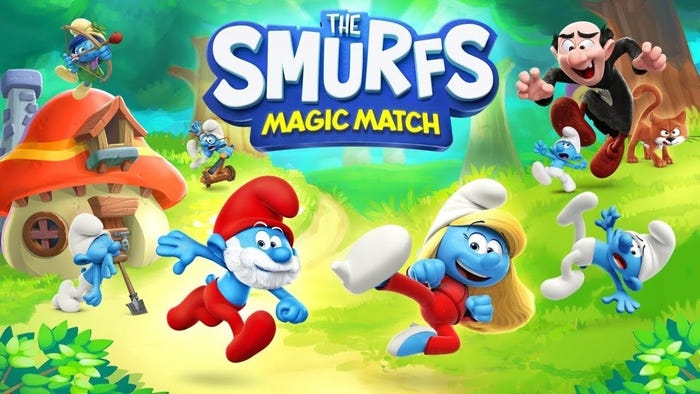
Featured Blog | This community-written post highlights the best of what the game industry has to offer. Read more like it on the Game Developer Blogs.
The Fall Of Math
An explanation of why I believe an excessive emphasis on math is holding video games back from being more meaningful.

Video games are, primarily, math. It's kind of an odd statement to make. People constantly complain that our society lacks decent mathematical literacy, and yet an activity that virtually all adolescents and teenagers engage in is based almost entirely on math.
How many teens can manage the complicated build orders and resource management that a game like Company of Heroes requires? How many teenagers who would never think about taking a physics class can nevertheless manage the understanding of tire traction and weight distribution that playing Gran Turismo necessitates? But that's a bit of a side issue. What I want to talk about isn't just math from a gameplay standpoint, but also from a game design standpoint.
So games are mostly math problems, right? This isn't really a new insight: Raph Koster was talking about it a couple years ago, and I'm sure someone I'm not aware of was talking about if before that.
To some degree, there will always be math in games. Even reduced to its simplest form, something like the movement of a cursor or an avatar is still a function of arithmetic. There's no way to get past the need for programming to involve math. But there are ways to get past gameplay as math. But why would we want to do that? What's wrong with math?
What's Wrong With Math?
Nothing, necessarily. I love playing hockey games, and I count the Civilization series among my favourites, and math is an integral part of those games. The problem is when math is our answer to all problems. To some degree I touched on this issue back in my discussion of morality systems in games. In role-playing games, even social situations are reduced to numbers.
My chances of succeeding at charming someone in Fallout 3 are based on a statistic, not on what I choose to say, how I say it, how I've treated that person previously, or any other similar factor. In Mass Effect, my dialogue options are limited to the ones that I have the right statistics to see. This leads to players putting skill points into the options that they think they'll want later, rather than organically choosing the options that are most appealing to them for whatever reason. The fact that RPGs - especially Western RPGs - have their roots in pen and paper games like Dungeons and Dragons certainly has a lot to do with this. But isn't it time we got past that?
The focus on numbers and statistics also comes from video games' heritage in arcades. Early games didn't just have scores, scoring was the game. And for a long time, a significant portion of games remained about attaining a high score. Now games that challenge you to beat a particular score are not all that common, and are generally categorised as retro.
Yet games that are not fundamentally about scores still try to measure the player as though they were. The Metal Gear Solid and Silent Hill games, for example, grade the player's performance once they have been completed. Metal Gear Solid 2 even contained a password function to compare your score with that of other players. But does that even make sense? MGS isn't a game about scoring.
It is, more than most other games, about its narrative, and it is to a large degree about the player's ingenuity. So why does it feel the need to try to measure you? An even more striking example is raised by Mark Sample in an article in the academic journal Game Studies - the video game based on the TV series 24 measures how well you interrogate/torture an NPC. Apparently your "skill" at interrogation/torture can be reduced to a number. Why are we telling players that sort of thing? I'll answer that question in just a minute.
Another issue that I have with the excessive focus on mathematical problems in video games is that math problems virtually always have an optimal solution. This leads to behaviour generally known as "maximising": players will attempt to discover the ideal mathematical way to achieve the goal of the game. But I don't really want to play games in which there is a mathematically "correct" decision (or more likely, series of decisions) to make.
It may sound like I'm asking for games to be free of consequences, but what I actually want is something I've mentioned before - for games to have meaningful consequences. But I do believe that existence precedes essence, so as far as I'm concerned, there can never be a mathematical way to determine meaning. Instead, activities and results in games should have meaning because the team making the game have given them meaning.
The Social Context
There are social reasons that I feel this way as well. The way our current society is structured is very much about giving everything a number to define it. The value of the work you do is measured in "dollars per hour" (or euros per hour, rupees per hour, etc.); your value as a student (and, implicitly, as a human being) is measured in grades; as anyone who has followed the recent financial catastrophes knows, Wall Street financiers have even given numbers to assets that don't actually exist. Our entire culture is based around the idea that everything can be measured.
But when you stop and think about it, the things that actually matter can't possibly be given a number. What number would you attach to the enjoyment you gained from the last great book you read? How much money is the Amazon rain forest worth? What value does your love for your family and friends have?
The idea that everything can be measured is deeply harmful and quite obviously untrue, and people making games have, I believe, at least some responsibility to reflect the world honestly. And games can't possibly reflect the world honestly if they continue lying to the player by telling them that everything important can be measured.
How Do We Make Games That Aren't Math-y?
So now I've probably alienated a significant chunk of the people reading this with all of my criticisms, but what should we do instead? There are two main ways that I can think of, but I've only ever really seen one of them attempted. The first one is through logical puzzles. Now, some people will say logical puzzles are essentially a form of abstract math anyway, so maybe you won't grant me that one, but I think there's a clear difference between, say, Monkey Island, and the kinds of maximising that games with damage values that the player is aware of engender.
Braid would be a good recent example of this category. Because the player does need to do things like timing and spacing jumps, there is a degree of math involved, but the puzzles are primarily logical puzzles. Significant portions of Indigo Prophecy would also count. While there are sections of the game where the player's inputs are measured numerically, especially towards the end, there are also very large portions of the game that require no math - the opening scene in the bathroom, for example, or most of the police investigation portions.
The other major way that I can think of is through narrative choice. Unlike in recent RPGs, however, the player's narrative choices should not be based on any measurable attribute of the player's avatar, and the outcomes themselves should not be numerical. The player should be able to make their choices based either on what is valuable to them, or potentially what the game requires them to find value in. And the results of those decisions should affect the narrative, rather than the player's attributes.
Now, many people will complain that such a game is just a glorified Choose Your Own Adventure. And perhaps on a basic level they would be right. But on a basic level Starcraft is just a spreadsheet. This is a case where the whole is definitely more than the sum of its parts. Starcraft is a spreadsheet with an interesting setting and series of interactions layered over top of it. There is no reason that the same thing can't be done with narrative.
About the Author(s)
You May Also Like









